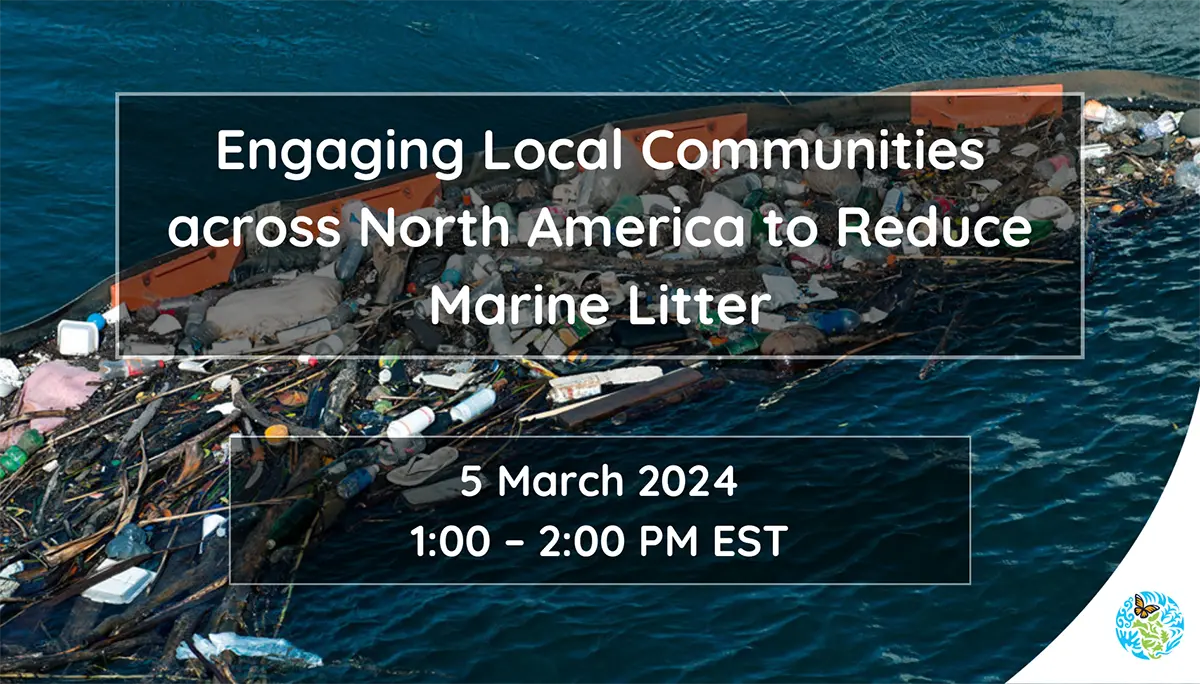On 5 March, Join Our Webinar: Engaging Local Communities across North America to Reduce Marine Litter
Did you know that 80% of marine litter originates on land?
Mark your calendar to hear from community engagement leaders in the field of marine litter mitigation during the Reduction of Marine Litter project closing webinar, hosted by the Commission for Environmental Cooperation (CEC)’s Ecosystem Unit, to see how you can help address this urgent priority!
During this webinar, the CEC will present tools (available in English, French and Spanish) to help communities, cities, organizations and other actors to take action locally and raise awareness about the journey of litter to the ocean. Participants will also hear how three communities in Canada, Mexico and the United States have taken action to reduce litter in their communities.
Register for the event here.
The webinar will be held virtually via Zoom on 5 March 2024 from 13:00 to 14:00 Eastern Standard Time (EST) and will be offered in both English and Spanish, with simultaneous interpretation available in English, French and Spanish.
North America is a significant contributor of land-based marine litter. Common trash from consumer goods in coastal and inland locations make up the majority of litter that eventually becomes marine litter, polluting our waterways and oceans.
Since 2017, the CEC has been raising awareness, supporting local action and developing tools to address the problem of land-based marine litter in North America.
Our work supports local communities by encouraging the prevention and reduction of litter before it finds its way to waterways and oceans. Learn more about our work on reducing marine litter.
For updates about CEC initiatives and news, sign up for our newsletter and follow us on social media.

About the CEC
The Commission for Environmental Cooperation (CEC) was established in 1994 by the governments of Canada, Mexico and the United States through the North American Agreement on Environmental Cooperation, a parallel environmental agreement to NAFTA. As of 2020, the CEC is recognized and maintained by the Environmental Cooperation Agreement, in parallel with the new Free Trade Agreement of North America. The CEC brings together a wide range of stakeholders, including the general public, Indigenous people, youth, nongovernmental organizations, academia, and the business sector, to seek solutions to protect North America’s shared environment while supporting sustainable development for the benefit of present and future generations
The CEC is governed and funded equally by the Government of Canada through Environment and Climate Change Canada, the Government of the United States of Mexico through the Secretaría de Medio Ambiente y Recursos Naturales, and the Government of the United States of America through the Environmental Protection Agency.